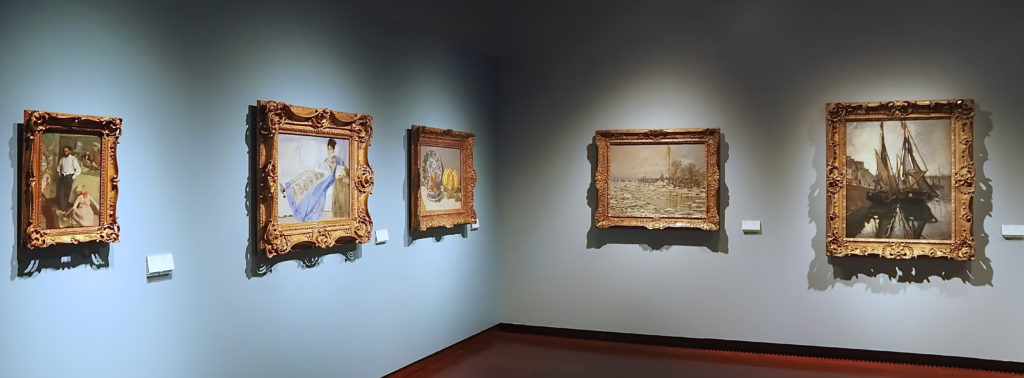Quick Hits
Daily brief research updates from the cognitive sciences

“Imagine you are a master thief doing a heist at an art museum,”. These were the instructions, that may sound strange, at the start of a scientific experiment. All harmless of course and something we can relate to with many an entertaining film about master thieves.
This was all part of setting the scene in a computer game to measure memory in a clever experiment conducted by Alyssa Sinclair and colleagues at Duke University. But, and this is crucial, the instructions given differed slightly and this is what led to different learning and recall outcomes.
The potential master thieves, study participants, 420 adults in all, were told that they were in the moment of the heist itself or, alternatively, that they were scouting out the museum for a future heist. The virtual museum was exactly the same with four coloured doors leading to four rooms with different collections of art with some picture and collections being more valuable than others.
And these two mindsets labeled a high-pressure mindset, needing to perform in the moment, and a curious mindset gave noticeably different outcomes when measured the following day.
The following day participants logged back in and were queried on their recall of the paintings and their values. They were presented with a whopping 175 pictures, 100 from the game and 75 additional ones, and asked to identify them and place the respective values to them.
Those who were in the scouting, curiosity, mode, the curiosity mindset were much better at identifying the correct pictures and assigning the correct values to them.
It seems that this lower-stress state allows for better mapping of the world and therefore better memory and recall. However, it’s not all bad for the high-pressure mindset. Though recall was lower, they were able to more effectively identify the highest value pieces and subsequently “won” on collecting the most stash.
This highlights what other research has pointed to, namely that high-pressure is good for value-based judgements in the moment. This is the proverbial scenario of escaping from the threatening bear – if you are faced with a bear, scouting the environment and remembering this, is not the best strategy and immediate value-based i.e. save my neck, judgement is needed.
It also does show that curiosity is effective for learning and needs to be in lower pressure situations. This in our adult lives can, however, be challenging, as it can be for many businesses. We are often moving constantly from one high-pressure situation to another and this can therefore impede learning and recall (not to mention leave us in a constant state of stress).
So the big outcome of this is that for learning and recall, curiosity is the best mindset – and this is something that is free and accessible to all of us.
Curious to learn more? I reported previously that curiosity could be an inborn trait and the newly discovered brain networks that drive curiosity.

Andy Habermacher
Andy is author of leading brains Review, Neuroleadership, and multiple other books. He has been intensively involved in writing and research into neuroleadership and is considered one of Europe’s leading experts. He is also a well-known public speaker, speaking on the brain and human behaviour.
Andy is also a masters athlete (middle distance running) and competes regularly at international competitions (and holds a few national records in his age category).
References
Alyssa H. Sinclair, Yuxi C. Wang, R. Alison Adcock.
Instructed motivational states bias reinforcement learning and memory formation.
Proceedings of the National Academy of Sciences, 2023; 120 (31)
DOI: 10.1073/pnas.2304881120
More Quick Hits
Want to Live Longer? Be Optimistic!
Quick HitsDaily brief research updates from the cognitive sciences e probably all know some people who are particularly pessimistic - always putting a negative side to things and expecting the worst outcomes. We probably also know some people who...
How Having Had COVID-19 Negatively Impacts Performance at Work
Quick HitsDaily brief research updates from the cognitive sciences ’m sure we’re all aware of the various negative aspects of having contracted COVID-19 such as long COVID but also the brain fog that seems to have been a feature that many people...
Narcissistic Leaders Block Knowledge Flow and Cooperation
Quick HitsDaily brief research updates from the cognitive sciences arcissism is considered one of the three dark-triad traits and something that has been reported as being common in senior leaders. The important question is can and does this hinder...
The Science of Exposing Liars
Quick HitsDaily brief research updates from the cognitive sciences he one place that we can consistently catch people lying is in job interviews. And the question has long been how do you catch out these liars? The answer is you need to outsmart...
High Traffic Noise at School, Slower Cognitive Development
Quick HitsDaily brief research updates from the cognitive sciences ho would have thought that traffic noise could impact cognitive development of kids? Well according to this recent piece of research it can. Are you sure? Well, these researchers...
How Gratitude between Co-Workers Lowers Stress and Increases Performance
Quick HitsDaily brief research updates from the cognitive sciences ratitude is a nice thing to have, I think we all agree on that. But when it comes to the workplace some may see it is just being nice, and not being focused enough on the hard...






